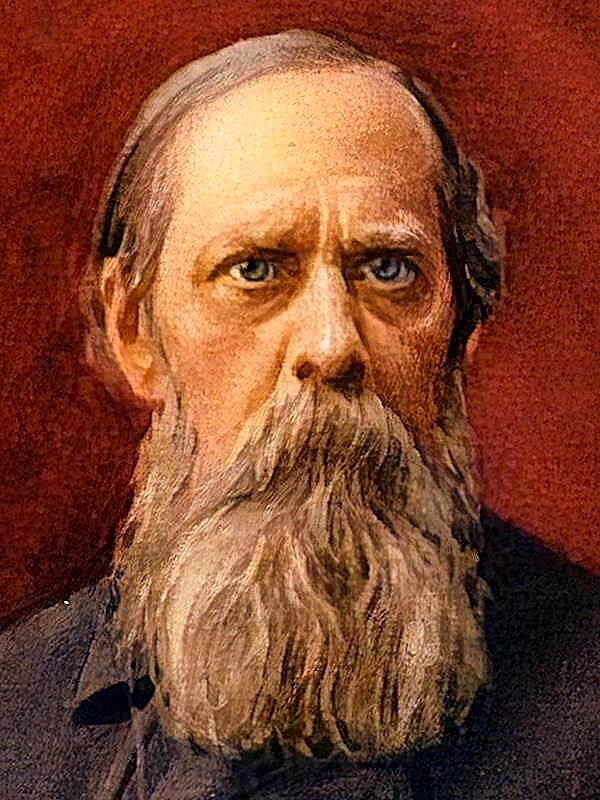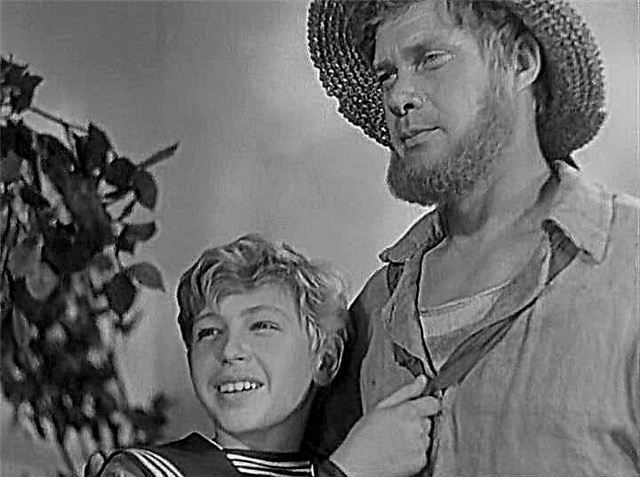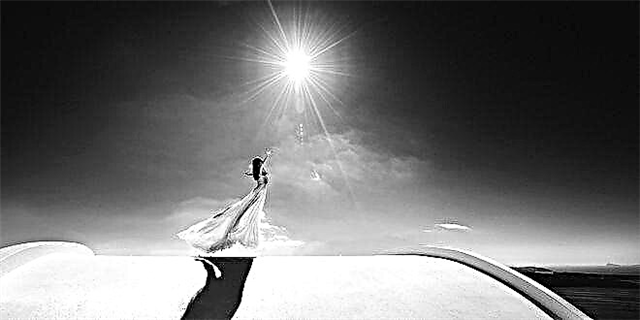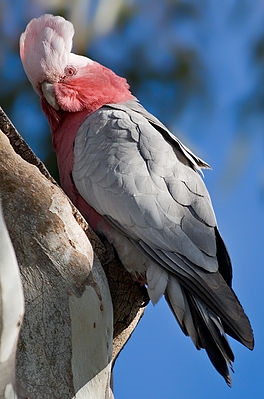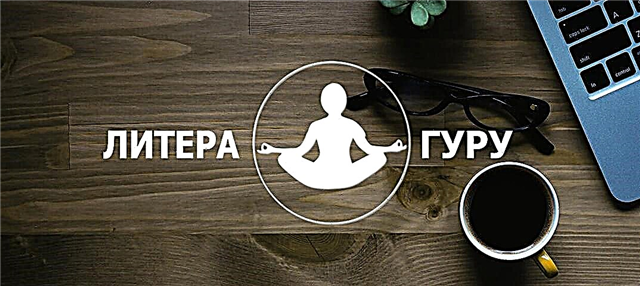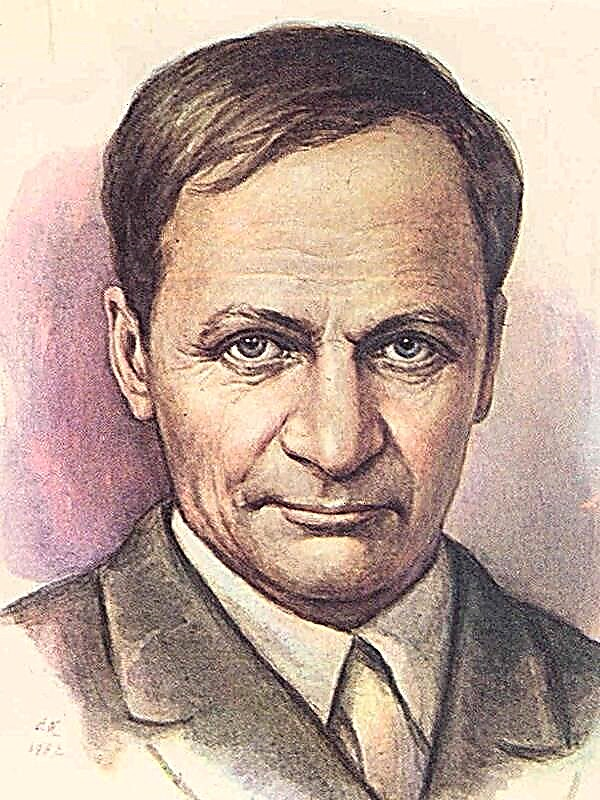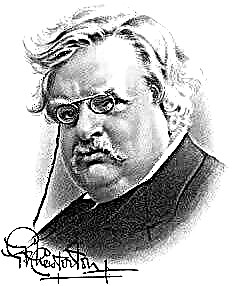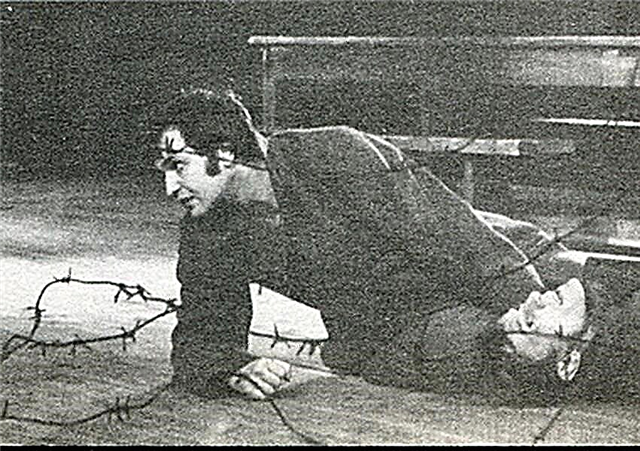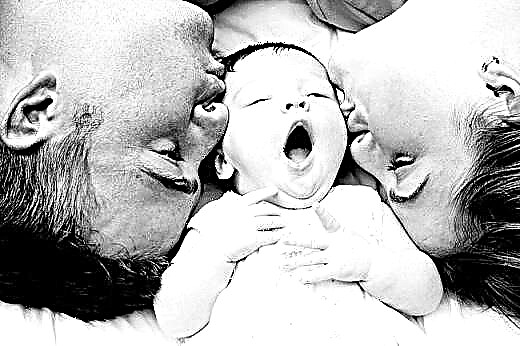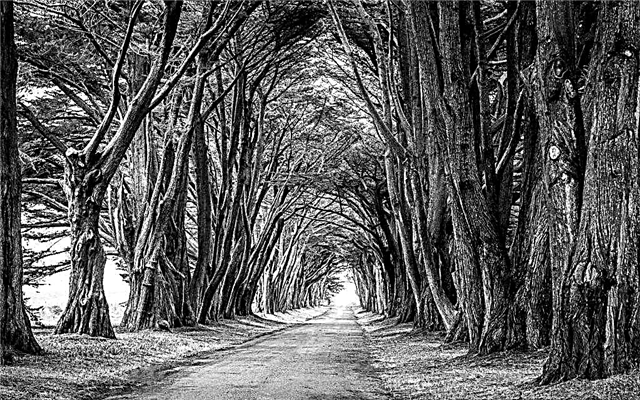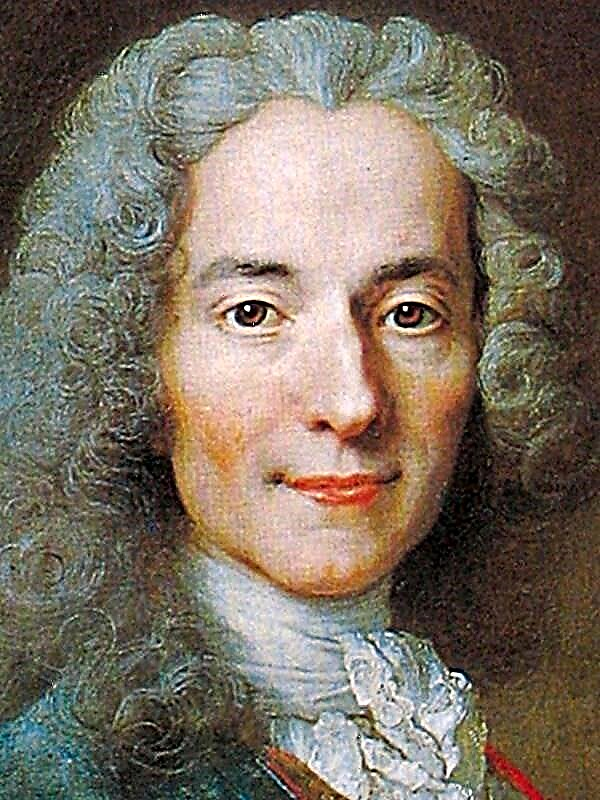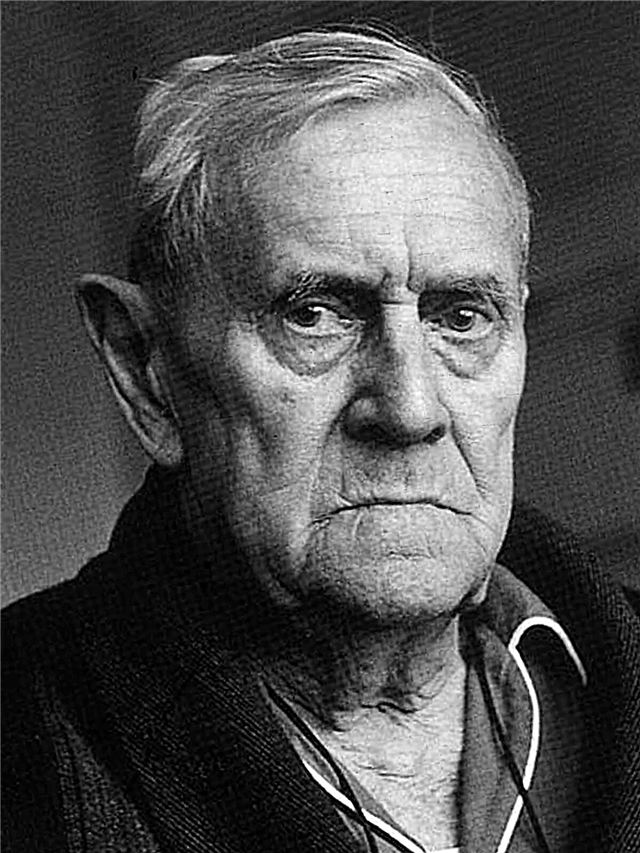A brief retelling of War and Peace in chapters, parts, and volumes is an indispensable textbook for good students and excellent students. In order to regularly refresh your memory with forgotten details, accurately reproduce the main events, thoroughly know the plot, you must periodically refer to the text of the novel, reproduced in abbreviation. The Literaguru team will help you with this.
Part 1
- Chapter 1. By 1812, it became clear that Russia would soon be at war with France. What are the reasons? There are a huge number of them, but the main one, according to the author, is the spontaneous movement of the masses. Not emperors ruled him, but vice versa.
- Chapter 2. May 29, Napoleon left Paris. By June 12, an unexpected attack had already been scheduled - a passage through the Neman. In the army of the emperor, this event is greeted joyfully.
- Chapter 3. Alexander I lived in Vilna, nothing was ready for war, and the emperor participated in balls. When the French crossed the Neman, Benigsen gave a reception, which was attended by Alexander. At this ball were Helen Bezukhova and Boris Drubetskoy (they will find secular connections everywhere). The latter accidentally heard the emperor being informed of the start of the war.
- Chapter 4. Alexander, through the close general Balashev, sent Napoleon a letter containing both an attempt at reconciliation and a threat (the latter, however, more likely verbally: the emperor will not reconcile until there is at least one French soldier in Russia). Balashev was received hostilely and disrespectfully, but they drove him to Napoleon. On the way, Murat met, who spoke with the general and communicated his thoughts that it was the Russian emperor who became the instigator of the war. After meeting with Murat, Balashev was not introduced to Napoleon, but was detained by Marshal Davout.
- Chapter 5. Davout was a French Arakcheev, so he began with forceful methods. Coldly and indifferently accepting the general, he began to demand that he hand over the letter immediately, and not personally to the emperor. Balashev had to obey. For several days a messenger waited for a meeting with the French emperor, he even crossed with the enemy’s troops. And an audience was appointed when the French had already entered Vilna.
- Chapter 6 Napoleon met Balashev with smug joy, because he believed that the whole world depended on his desires. He was waiting for an explanation of the relations between Russia and England, adding that he did not want war. And Russia does not want to, but it has conditions: France’s retreat back behind the Neman. But Napoleon does not agree, he expresses all the mistakes of Alexander (he first came to the army, surrounded himself with the enemies of France, a poor commander without allies). Balashev tried to object, but the emperor interrupted.
- Chapter 7 Soon Balashev, to his surprise, was invited to Napoleon for dinner. The emperor asked the general about Russia, asking simple questions as if he were a traveler. Then he again said about Alexander’s wrong decisions, especially that the Russian emperor took over command. But Balashev soon left, conveyed the conversation to the Russian emperor, the war began.
- Chapter 8 Andrei Bolkonsky went to Petersburg to find Anatoly Kuragin there and challenge him to a duel, without compromising Natasha Rostov. But the enemy was not, and wanted to distract from thoughts with activity. And Andrei again became adjutant to Kutuzov. Before leaving for the army, Bolkonsky drove home. Outwardly, everything was usual, but in reality the households were divided into two camps: the old prince, Buryen and the architect close to the prince on one side; on the other hand, everyone else: Mary, Nikolushka, his teacher Desal and others. There was a secret feud between them. The father began to condemn the daughter with his son. Although the old prince himself understood that he was tormenting Marya, he considered it right, blamed her for all the misfortunes, including in her rejection of the Bourienne. Andrew sided with his sister, for which he was kicked out of the room. Then the hero realizes that he does not even feel his former love for his son. All this depresses Andrei, and he cannot forgive, as Marya advises.
- Chapter 9. In early July, Bolkonsky was in the main apartment of the army. The troops were retreating. The hero was assigned to Barclay de Tolly. At this time, the army was divided into three parts under the command of Barclay de Tolly, Bagration and Tormasov. Under the emperor, several parties and views developed: 1) it is necessary to retreat according to plan; 2) you need to fight without a plan; 3) it is necessary to execute the plan, but not to the end; 4) with the French there is no chance, you need to give up; 5) the main thing to do is Barclay de Tolly, then everything will be formed; 6) the main thing to do is Benigsen; 7) the main thing to do is the emperor himself; 8) all tactics are unimportant, the main thing is pleasure and privilege; 9) the court needs to return to the capital and appoint the military commander in chief, otherwise everything will become mired in secular pleasures. Alexander liked the third option, although it was ineffective.
- Chapter 10 The emperor made an appointment to Bolkonsky. In addition to the prince, Alexander assembled a “half-council” on the topic of military failure. Pful was the most belligerent, because his camp was examined without him, he was insulted in advance.
- Chapter 11 Alexander I arrives with the Marquis Pauluchi, who says that the camp at Driss is a stupid undertaking. But the emperor does not follow the interlocutor’s speech very closely. At the council, General Armfeld presents a plan for army action. Pful fully disdained this idea, he fought for his own, arousing some respect with this fanaticism. Then the debate continued, and everything was confused. Prince Andrey at that time thought that all theories put forward by the military were stupid, since the outcome of the battle does not depend on this.
- Chapter 12. Nikolai Rostov receives a letter telling about Natasha’s illness, and they beg him to resign and return home. He doesn’t want to agree, he is called on a debt of honor to the war (as he writes to Sonya, he also promised to marry her). Having plunged into the regimental life, the hero felt satisfaction. On July 12, the Rostov regiment was preparing for the “case”. While stationary, officer Zdrzhinsky spoke about Raevsky’s feat on the Saltanovsky dam. It was raining, so soon everyone went looking for shelter, found a haven from the doctor.
- Chapter 13 The doctor had a pretty wife who attracted officers. Everyone looked after Marya Genrikhovna. The doctor woke up and did not appreciate the general fun. He and his wife went to sleep in the wagon.
- Chapter 14. They gave the order to speak to Ostrovnoy. Rostov was not afraid of battle; he learned to control his soul. While the hussars were inactive.
- Chapter 15 Rostov led an offensive squadron and crushed an advancing squad of dragoons. He was animated, but that feeling disappeared when he just killed the retreating Frenchman. Rostov will receive the St. George Cross for this attack, but he is saddened by his act.
- Chapter 16. Natasha Rostova’s illness was so serious, even her cause faded into the background. The Countess, Sonya, and everyone else took care of the patient. They were assisted by doctors in organizing their leisure activities, since the reason was not treated with drugs here. Natasha saw participation in all the troubles, but did not recover for a long time. But time heals, the girl began to recover.
- Chapter 17 Natasha became calmer, but could not return the past revival. She did not see the future, believed that all the joys were over. Of all the guests, she was glad only to Pierre Bezukhov, who treated her with great care, he clearly liked her. Agrafena Ivanovna, the Rostovs' village neighbor who arrived, offered Natasha to speak, and she agreed enthusiastically. During this week, Rostov began to feel that she was cleansing, and after the end of the ceremony she first realized that she was not burdened by life.
- Chapter 18. Moscow is anxious about the French threat. Pierre promised to learn something and tell Rostov. Those went to church, where Natasha heard that they were discussing it. She felt she was better now, but too late. At the same time, she examined the parishioners and condemned them internally, and then was immediately horrified that she again lost her purity. During prayer, the heroine was very imbued with her, the idea of universal equality in turning to God. She asked the Creator for help for herself and others. Prayers and preaching worked on the open soul of Natasha.
- Chapter 19. From the time Pierre saw the grateful look of Natasha (he was the first to truly console her after the story with Kuragin), all painful questions have been resolved, and most importantly, this is her. He led a secular life, ate and drank, but lived only on visits to the Rostovs. Pierre felt that his situation would soon change, and disaster would come. By reading the Apocalypse and the Masonic prophecy cipher, Bezukhov deduced that Napoleon was the cause of the future catastrophe. After checking his name on the cipher, Pierre revealed a connection with this event. At the same time, Bezukhov met a courier delivering letters from the front, who asked to take the letter of Nikolai Rostov to his family. But it is not possible to find out something specific regarding the situation of Russia in the war.
- Chapter 20. Pierre saw the Rostovs first Natasha. She tried to sing again. After consulting with Bezukhov on this subject, Rostova asked if Bolkonsky would ever forgive her. Pierre assured that he had nothing to forgive. Natasha thanks him for being at a difficult moment. At this time, Petya appears and asks Bezukhov to find out if the boy will be taken as hussars. Then dinner began, during which they talked about interest in the Russian language and about volunteers in the war. After the meal, an appeal is read, which refers to the danger to Russia and Moscow and the hopes of the nobles. Old Count Rostov burst into tears. Natasha perked up. Petya decided to go to war. Pierre at this time admires Natasha, and her father says that her daughter was cheerful only with Bezukhov. Unable to fight the contradictions of feelings and reality, Pierre decides not to come again.
- Chapter 21 Having been refused his request, Petya went to his place to cry, and later decided to go to the emperor. Alexander came to Moscow, and if Rostov, so young and promising, would have been introduced to the sovereign, he would have been accepted into the army with open arms. That is why the boy the next day went to the square where they were waiting for the emperor. The latter’s arrival is delightful, so Petya standing in the crowd was crushed so much that he fainted. After the boy saw Alexander, he was so glad that he forgot about his petition, therefore, together with the crowd, he accompanied the ruler with joyful cries. Returning home with nothing, Petya told his father that if he was not accepted into the army, he would run away. The father began to look for a safe place for his son.
- Chapter 22. Three days after the emperor’s arrival, there was a “consultation with the people,” or rather, with the nobles. Controversy erupted over whether nobles need to express their opinions and know the course of the campaign, or at the decisive moment you just need to be executors of the will of power. Pierre believed that for real help you need to know how to help, the course of hostilities. Everyone else rebelled against him and took up arms, as if he were a common enemy.
- Chapter 23. Rastopchin came and said that a militia was required from the nobles (while money was from the merchants). The emperor who came confirmed these words in a pathetic form and thanked all the nobles. The moved Count Rostov went to enlist Petya in the army, and Bezukhov allocated a thousand people to the militia.
Part 2
- Chapter 1. Not individual people began the Patriotic War. That did Providence, that was how it should be. Napoleon did not really foresee the danger of defeat, and Alexander did not lure him deep into Russia, it just had to be that way. The Russian emperor does not bring any benefit at all, when he finally left the army, it became much better. Barclay de Tolly is cautious, even too much. And in Smolensk, the armies are uniting. While preparing for battle, the French stumble upon the Russians by chance. The battle brought great losses, Smolensk left.
- Chapter 2 After the departure of Prince Andrei, his father accused Marya of having quarreled with his son. The old man was sick, he did not allow anyone to himself. He broke off a strange relationship with Bourienne after his recovery, but he also kept a cold with his daughter. The atmosphere in the house was depressing. Mary spent time with Nikolushka and the wanderers. She is afraid of war. Julie writes to her (already in Russian, imbued with patriotism), talks about the exploits of the Russian troops. Mary did not particularly understand the war, because the old prince laughed at it. The old man was active in the household, but for some reason slept little. In one of the letters, Andrei described military events and advised him to leave for Moscow. But the father ignores the offer of the son. Yard Alpatych sent to Smolensk.
- Chapter 3 The old prince gave instructions to Alpatych for a long time. After a long time I could not sleep, it became painful for him. The prince again read through his son’s letter and understood the danger better, but most of all the hero wanted everything to end and he was left alone.
- Chapter 4 Desal asks Princess Marya to ask Alpatych to learn about affairs in Smolensk. He overtook carts and troops along the road: people are leaving. The familiar merchant Ferapontov ridicules the fear of the inhabitants. Governor Alpatych is given a paper stating that there is no danger. But in words the governor advises to leave. In limbo, the servant sent by the Bolkonski returns. Ferapontov’s wife asked to leave, for which her husband beat her. He is worried about his goods. A long shelling began, after which residents learned that Smolensk was surrendered. Ferapontov is going to set fire to the house so that the enemy does not get it. Alpatych leaves, on the way meets Prince Andrew. Bolkonsky himself writes a note that in a week the Bald Mountains will be occupied, it is necessary to leave.
- Chapter 5 After Smolensk, Russian troops all retreated. In general grief, Prince Andrei, the regiment commander, forgot his grief. Once near the Bald Mountains, the hero decided to call in there (although there was no need). On the estate he met only Alpatych (father and sister left), he heard about the ruin of the passage of soldiers. At this time, Bagration wrote to Arakcheev (and, therefore, to Alexander) that Smolensk could be saved, that the commander should be changed, since he was leading Napoleon to Moscow.
- Chapter 6. In Russia there was war and sorrow, but the light of St. Petersburg remained unchanged. There was a circle of Anna Pavlovna, patriotic, and a circle of Helen, pro-French. Vasily Kuragin went to both circles, therefore he was sometimes confused. He scolded Kutuzov, like many, believing that a decrepit and blind old man would not help victory. But he stopped doing it after he fell in mercy and became field marshal.
- Chapter 7 After Smolensk, Napoleon sought battle, but to no avail. A servant of Rostov Lavrushka was captured, with whom the emperor decided to talk. The servant before Napoleon did not tremble, he did not care who was in front of him. Lavrushka easily forged the mood of the interlocutor, so when the emperor said who he was, the servant made a surprised and enthusiastic look.
- Chapter 8. The Bolkonskys were not safe. The old prince was going to stay in the Bald Mountains, and send Marya, Nikolushka and Desal to be sent away. But the daughter did not agree to leave, seeing the condition of her father. Only Nikolushka and Desal were sent. Father was secretly glad that he was not alone. But soon he was hit. He suffered not only physically, but also mentally, as Marie wanted to say something, but could not. It was impossible to carry him, there was no hope of recovery. The daughter secretly awaited the death of her father, to her horror. It was dangerous to stay, the prince had to be taken. Before he left, he called Mary and spoke kind words to her. The daughter repented that she wished him dead. She ran out into the street, soon they came for her - the prince died.
- Chapter 9 In Bogucharov, where the Bolkonskys were located, the peasants differed from the Lysogorsky peasants. The old prince did not like them for their savagery, and they had relations with the French during the war. Alpatych helped Marya leave, for this he asked the headman Bogucharov Dron for horses for the departure of the princess and the people whom he did not want to find. In the end, the headman admitted that the peasants did not want to leave, and he could not do anything.Alpatych wants to give his horses for Mary.
- Chapter 10. Mary is upset because of her father’s death, she feels guilty because she secretly wanted his death. Bourienne came in, began to console her and said that it was better not to leave, because the French promised protection, and the peasants did not know what to expect. Hearing of “mercy” and “patronage,” Mary became angry and began to dispose of the departure. After calling Drona, she found out that horses could not be found. The princess did not get angry, but wanted to help the peasants. The headman asks to better relieve him of duties.
- Chapter 11. The men came to Marya. They refuse bread, considering it a farmer for the ruin of their homes. Princess is upset.
- Chapter 12. Mary does not sleep at night. She recalls her father, his last days, as he wanted to talk to her, but could not. Her thoughts scare.
- Chapter 13. Rostov and his friend Ilyin (their relationship was, as before, between Nikolai and Denisov, but Rostov was the eldest here) passing through Bogucharovo. They go out to meet Alpatych and Dunyasha, they say that Mary cannot leave. The drone finally gave up his duties and joined the peasants who did not want to let the princess go, but were going to hand her over to the French to earn their protection. Hearing from Mary about her misadventures, seeing her meek face and miserable situation, Rostov was imbued with sympathy for her. He will help her.
- Chapter 14. Among the men are worries about the arrival of the hussars. The drone expresses the idea that the Russian military will be offended, that Marya will not be released. To this statement, he was accused of his past sins and abuses in office (“the world ate food”), they did not listen to him. Rostov got angry at the arbitrariness of the peasants and, having tied the instigators of the riot, quickly put things in order. Marya collected. The princess thanks Nikolai, plunging him into embarrassment. Later, the girl realizes that she fell in love with him, but hardly mutually. She herself made a pleasant impression on Rostov, but he promised his heart to Sonya.
- Chapter 15. When Kutuzov became commander in chief, he called Bolkonsky to him. Waiting for the commander in chief, Andrei meets Denisov, who claims that a guerrilla war is needed. Noticing Bolkonsky, Kutuzov calls him to his place, but Denisov can no longer wait, he sets out a plan for guerrilla warfare. Watching this great man who began to consider plans, Andrey realized that he sees something inaccessible to others, he has some kind of method by which this flabby old man understands what needs to be done. Others cannot understand.
- Chapter 16. Kutuzov penetrates the grief of Andrew. He decided to keep Bolkonsky with him. But he refuses, he likes to command the regiment. The commander in chief regrets this, sensible people are needed. And in war, patience and time are needed. After a conversation with Kutuzov, Andrei came out reassured about the outcome of the war, since he could not hurt, because he knew how not to interfere with the inevitable course of events.
- Chapter 17 Moscow society frivolously looked at the approach of the French. Everyone chuckled at the enemy. There was a surge of patriotism, in secular circles paid fines for the French language and speech. At the evening, Julie is present and Pierre. He put up a regiment of militias, which brings a lot of trouble. Pierre defends Natasha Rostov, who is said to be prettier, despite life's conflicts. He also learns about the arrival of Mary and her salvation.
- Chapter 18. Pierre cannot decide whether to go to war. Bezukhov comes to one of his cousins, princesses. She persuades to leave Moscow. Nevertheless, Pierre remained in Moscow, and a relative left. Seeing the folk execution over the French chef, the hero finally decided to leave. At the same time, he felt that he had to do something and sacrifice something.
- Chapter 19. Both sides were not ready for the battle of Borodino; it harmed both. Why was there a fight? It’s just that the laws of history are inevitable and independent of people, and this general battle is a series of accidents.
- Chapter 20. Pierre left Mozhaisk on the eve of the battle of Borodino. His noble appearance was ridiculous and amusing. He rode next to the convoy of the wounded, who were sure that there would be a serious battle for Moscow, all the people would fight.
- Chapter 21. Pierre looks at the field of the future battle. Nearby officers explain to him the position. A church procession appears, an icon was brought to the soldiers. After the prayer, the first Kutuzov approached her, who was just circling the troops.
- Chapter 22. Pierre meets Boris Drubetskoy. He promises to show troops and take Andrei Bolkonsky to the regiment. Boris was under Benigsen, who was hostile to Kutuzov. Familiar approached Pierre, all excited, but not by a future battle, but by future privileges for themselves. Kutuzov notices Bezukhov, he is affectionate with him.
- Chapter 23. Benigsen and his retinue went to see the position, Pierre went with them. The military moved the troops to a height without telling anyone, although they were in ambush.
- Chapter 24. Andrei was lying and thinking. He gave all the orders, it remains only to wait. He thinks how fleeting all his past interests are, how all this can disappear and change in an instant. Then Pierre appears.
- Chapter 25. Friends began to drink tea with regimental officers. Discuss the appointment of Kutuzov. Bolkonsky and the officers consider him a better option than Barclay de Tolly, who did everything in science, but is unsuitable for Russian life. In a war on your land, you need your own commander in chief. And the art of a commander does not play a role, since war is a series of accidents. Andrew believes that tomorrow’s battle will win. Bolkonsky also adds that one should not be generous with the enemy, since war is not a game, but the most disgusting thing in the world. Pierre sees the difference in their thoughts and realizes that they saw each other for the last time. Night falls, it's time to sleep before the fight.
- Chapter 26. Napoleon is busy with ordinary activities: morning toilet, conversations with servants and military leaders. For him, everything is ordinary, he is going to win the battle and take Moscow. He writes a message to the army, which should raise morale.
- Chapter 27. Napoleon examined the area and discussed the battle plan. Returning, he wrote a disposition, rather obscure, confused and impossible to execute. After the start of the battle, Napoleon intended to give orders according to the situation, but this is unrealistic, since he was too far from the fighting.
- Chapter 28. The battle was controlled not by Napoleon, but by the people and chance. It only seemed to the emperor that he was at the helm. But in fact, his disposition (which was even better than others) was not executed, everything went as it should.
- Chapter 29. After Napoleon gave all the orders, he began to rest. Because of a runny nose, he could not sleep, the emperor was bored, because he gave all the orders, there was nothing more to do.
- Chapter 30. Pierre nearly overslept the battle. But still managed. He was struck by the beauty of the Borodino field. He drove to the crossing.
- Chapter 31. Bezukhov, without knowing it, was on the front line, on the battery. He smiles at everyone, embraced by inner warmth, popular feeling, and gets in the way. Later, Pierre went to see the flank of Bagration from the mound. The soldiers soon got used to Bezukhov. During shelling and their own shots, they joke and talk. Fire flared up, the ardor of battle. It was getting hotter, Pierre had already ceased to notice. He went after the shells with a soldier, but he was hit by a shot, but did not injure or kill.
- Chapter 32. Bezukhov ran to the battery, but the French were already there. One of the soldiers nearly captured Pierre, but they were interrupted by shelling. The hero ran. The battery was recaptured. Pierre was horrified and expected the same from the fighters. But there everything only intensified.
- Chapter 33. From a distance Napoleon watched the battle, so his course was not clear to him. Orders did not have time to reach the troops. Marshals and generals, in fact, also did not influence anything. But the soldiers went forward or fled themselves, depending on the circumstances.
- Chapter 34. There were fewer people, but the French did not win. Despite the tactical and resource weakness of the Russians, they all cannot be broken. Napoleon anticipates defeat. The entire Russian campaign was strange and inappropriate for the military art of the emperor.
- Chapter 35. Kutuzov sat in one place and waited. He confirmed the orders, was confident of victory. During lunch, Volzogen talks about the upset situation of the troops, but the commander-in-chief believes in the army.
- Chapter 36. Bolkonsky's regiment was in reserve, but it was constantly fired upon. Andrei went back and forth, because everything was done without him. Suddenly a grenade fell near him. He was numb and scared. But the grenade did not explode, and Bolkonsky was already happy, but early. The prince was seriously wounded.
- Chapter 37. Andrei was brought to the tent of doctors. On the next table, the Tatar was cut something on the back. Andrei himself had surgery, during which he lost consciousness from pain. And then Bolkonsky realized that on the next table was Anatole Kuragin, who had his leg cut off. And Andrew forgave him, forgave all people and was filled with mercy.
- Chapter 38. Napoleon now also sat and waited, creating in the imagination an artificial world of his greatness. And the Russians all stood.
- Chapter 39. People were already exhausted. Anyone could win, but both sides were too weak. The battle of Borodino broke the French army.
Part 3
- Chapter 1. Human movements are continuous, therefore, to understand history, one must proceed from the homogeneous attraction of people. The history is changed not by a few people, but by the masses.
- Chapter 2 The French army invaded Russia with great force. As the retreat, the Russian troops accumulated irritation and strength. It was impossible to give battle, but it was given. And it was impossible not to surrender Moscow. The Commander-in-Chief is in the middle of events, because he acts in relation to all circumstances that we, discussing the course of history, do not see.
- Chapter 3. A military council was being prepared at Fili. Kutuzov understood, heard from the conversations of the military leaders that there was no way to defend Moscow. But giving orders to leave her is scary.
- Chapter 4. The council was in a peasant's hut. Kutuzov caressed the girl Malasha, and she was worried about all the advice internally. Benigsen said that Moscow must be fought. Kutuzov objected that it could only be saved at the cost of losing the army. There was a long debate.
- Chapter 5. They left Moscow, because it was impossible to live under the French leadership. But Rastopchin was ashamed of such people, although he did not think about Moscow, but wanted to indulge himself.
- Chapter 6 In St. Petersburg, Helene was under the patronage of a nobleman, and in Vilnius became close to the prince. Upon returning to Petersburg, they both met. When the prince began to rebuke her, she demanded that he get married. For the sake of this, a woman became interested in Catholicism. At the same time, she began to learn how to get a divorce.
- Chapter 7 In society, Helen began to prepare her divorce. She began to honestly tell that the prince and the nobleman were making her an offer, and she did not know who to choose. And in the light of it was supported by the majority. Helen herself thought that Pierre also loved her, did not know how to persuade him to divorce. She wrote a letter to her husband, he was brought when he was in battle.
- Chapter 8. Together with the soldiers, Pierre left the Borodino field. He was astounded. The soldiers took care of him: they fed and helped find their own.
- Chapter 9. When Pierre lay down in some city, he again remembered the battle, the rumble of guns, his fear and the firmness of the soldiers. In a dream, he wanted to be a soldier, to find this simplicity and purity. In the morning he went on foot through the city and reached Moscow with a friend, on the road he learned about the fate of Anatole and Andrey.
- Chapter 10 Rastopchin calls Pierre to himself. The adjutant tells Bezukhov that there are rumors about Helen and that some young man is being tried for writing a proclamation.
- Chapter 11 Rastopchin advises Bezukhov to leave and end relations with the Masons. But Pierre’s thoughts are preoccupied with another.
- Chapter 12. Almost before the entry of the French, the Rostovs were in Moscow. The countess was worried that Petya was at war, she needed him to return, the rest annoyed her. Petya arrived, but he kept cold with his mother, so as not to become obsessed. He most often spent time with Natasha. Only Sonya was really engaged in the departure, but she was busy with thoughts of meeting Nikolai and Marya Bolkonskaya, their marriage was a boon to all the Rostovs, because Marya was a rich heiress.
- Chapter 13. Natasha tried to get down to business, but could not. At this time, they came to ask the wounded to be placed in their house. Rostov agrees. At this time, the count arrives: you must go tomorrow.
- Chapter 14. After lunch, the Rostovs began to fit. The count was particularly disturbing. But Natasha actively set to work. She really began to help, cleverly laying carpets and dishes. The case was arguing, but they didn’t have time to put it down before night. They will go in the morning. And at that time they brought the seriously wounded - Andrei Bolkonsky.
- Chapter 15. The Rostovs came to ask for carts for the wounded. The butler did not agree. But when they turned to Count Rostov, he agreed. The countess did not like the fact that they removed things and gave carts to the wounded.
- Chapter 16. Berg arrived, asking for help with getting a "wardrobe and toilet" for Vera. Learning from Petya that mother felt sorry for the wounded for the wounded, Natasha makes them help. She filmed as many things as possible. And Sonya, at the desire of the countess, tried to take as much as possible and leave everything in order.
- Chapter 17. Sonya learned that Bolkonsky was traveling with them and that he was dying. She and the countess decided not to talk to Natasha. Finally, everyone got together and drove off. Natasha noticed Pierre and called to her. They said goodbye in a friendly manner. Bezukhov remains in Moscow.
- Chapter 18. Pierre fled the house and lived in the apartment of the deceased freemason Joseph Alekseevich. He took apart the papers of the deceased and reflected.
- Chapter 19. An order was issued for the retreat of troops through Moscow. The very next day, Napoleon looked from Poklonnaya Gora to the city. The emperor believed that Moscow (and Russia) was at his feet. Napoleon waits in vain for envoys from Moscow to negotiate the surrender of the city. However, everyone left her.
- Chapter 20. Many people left Moscow; it became like a hive without a uterus. Napoleon was surprised.
- Chapter 21 The retreating troops carried away the inhabitants. Merchants open their shops.
- Chapter 22. The Rostovs are also empty. A relative of the Rostovs came and asked for money. The remaining Mavra Kuzminichna (housekeeper) gives him 25 rubles.
- Chapter 23. In a Moscow tavern a fight. The people are worried. They read the appeal of Rastopchin, stupid in the present circumstances.
- Chapter 24. Rastopchin to the last did not admit to the inhabitants that they would surrender Moscow. He had to take out everything of value, but he handed out his posters and weapons. Regarding state institutions, Rastopchin does not give suitable orders, defiantly relieving himself of responsibility.
- Chapter 25. The crowd is going to go to the French on the appeal of Rastopchin, it is dangerous. He goes to the people. Rastopchin accuses Vereshchagin of leaving Moscow and gives the “traitor” to the crowd, and he himself went to a country house. On the way, a madman met. Rastopchin stumbled upon a retreating army. There was Kutuzov, whom he accused of leaving Moscow.
- Chapter 26. French troops entered Moscow. They entered the city with an army, and the vandals who had destroyed themselves with looted goods were supposed to leave. Moscow absorbed the enemy, because the fire in it was natural.
- Chapter 27. Pierre left home to hide from the need to dispose. At the apartment of Joseph Alekseevich, Masonic prophecies and his own theory about the connection of the name of Napoleon with his own came to his mind. Bezukhov decided to meet the emperor and kill. He was in a state close to insanity. Once, the drunken brother of the late Makar Alekseevich entered Pierre and began to behave violently, intending to fight Bonaparte. He began to knit. Then the French came.
- Chapter 28. A soldier and an officer entered. Makar Alekseevich tried to shoot them, Pierre did not. After he began to persuade not to recover from the drunk. Makar Alekseevich was forgiven.
- Chapter 29. The French officer, whose name was Ramball, did not let Pierre go. They dined and told each other experiences. Bezukhov even talked about Natasha.
- Chapter 30. A fire started in Moscow. It was visible from the Rostov train (they drove very slowly). Servants look at the glow and talk about the fire.
- Chapter 31. Upon learning of the fire, the old count and Sonya came out. The Countess and Natasha remained in the room. Mother cried, and daughter was in prostration. This began with her from the time that Sonya informed Prince Andrei. She is persuaded to go to bed, she agrees, doing everything mechanically. The heroine lies down from the edge and, having waited when everyone is asleep, left to see Bolkonsky. Andrei was the same, except for a sore face and a thin neck, he smiled and held out her hand.
- Chapter 32. Prince Andrew was supposed to die on the road from inflammation in the guts and fever. However, he felt better, but it only delayed a painful death for a short while. Bolkonsky asks Timokhin to get the gospel. Andrei was lying and thinking. His thoughts were clear, but acted outside his will. He thinks of love for his neighbor, of God, life and death. Then he notices Natasha. At first he thinks that he sees only delirium, then he realizes that she is real and feels “pure Divine love” for her. Andrey forgave her. From this day, Rostov began to care for Bolkonsky.
- Chapter 33. Pierre woke up with a pain in his body, but with thoughts about the future murder of Napoleon. On the street, his figure was surprising to everyone. Bezukhov surrendered to his plan and did not understand what was happening around. He did not go towards Napoleon, but towards the fire. Suddenly he heard a woman crying: her daughter remained in a burning house. He, accompanied by a servant, went to rescue her. Soldiers robbed at home, they indicated that the child was in the garden. Pierre took the girl and began to return.
- Chapter 34. The girl’s family disappeared somewhere. Inquiring about them, Bezukhov watched the French pester the Armenian family - an old man, an old woman and a girl. He began to protect them, they tied him up and put him in custody.

